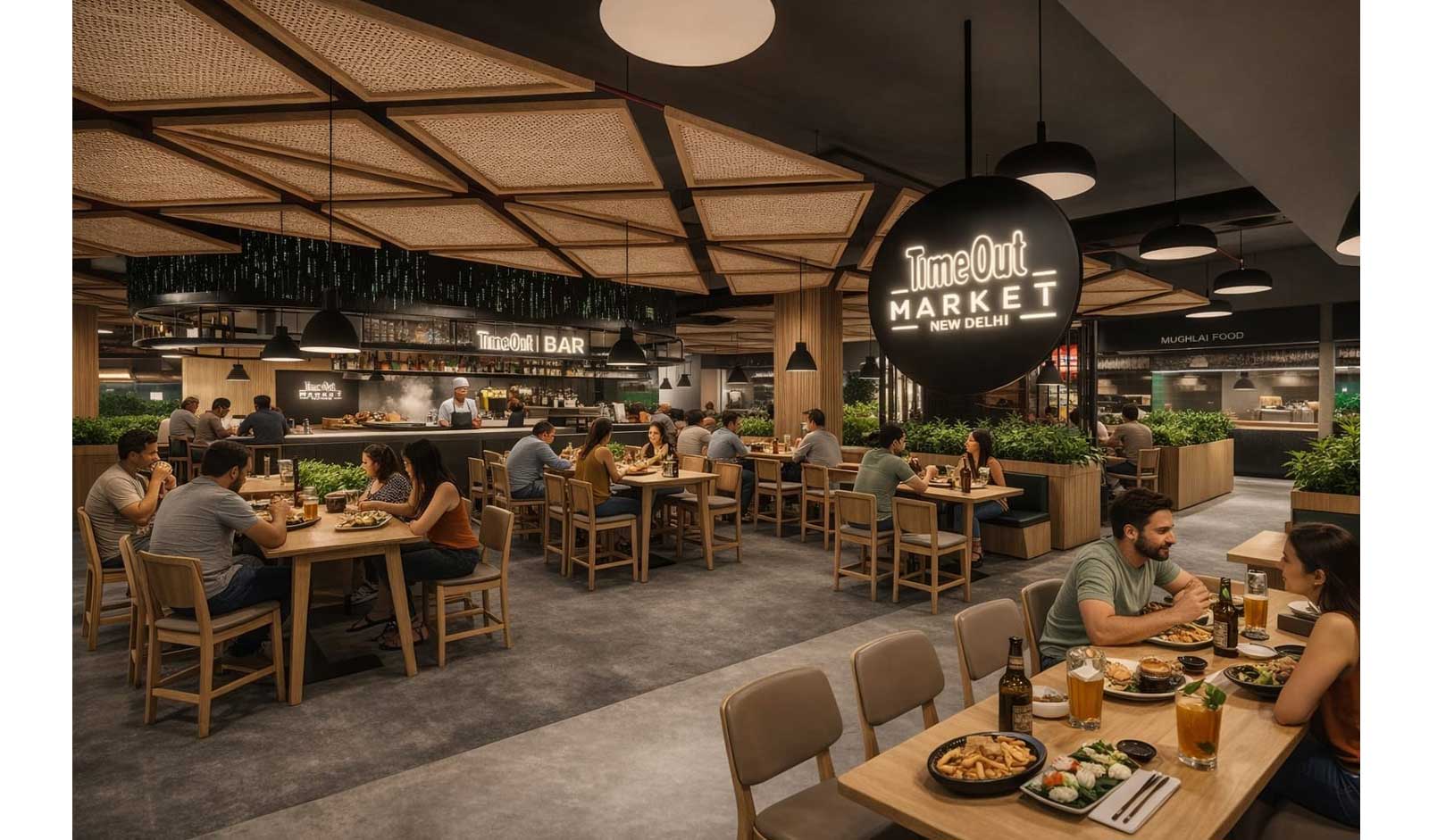
The restaurant business contributes significantly to the country's economy in a number of ways, including creating jobs, generating tax income; increasing consumption, boosting tourism, and purchasing goods and services from a number of other sectors and industries that rely on and benefit from it.
With nearly 8.50 million Indians directly employed in the sector, the restaurant business not only makes a substantial contribution to direct and indirect tax income but also ranks among India's top employers. In terms of services, the restaurant industry is the third largest after retail and insurance, with annual revenue of over INR 5.69 lakh crores.
The sector is anticipated to reach ₹7,76,511 crore and increase at an 8.1% CAGR by 2028, making it the third-largest food services market globally, according to the NRAI India Food Services Report 2024. By 2028, the industry, which currently employs 8.5 million people and contributes 1.9% of India's GDP, is expected to create over 10.3 million jobs. The industry has a number of obstacles despite its dynamic growth trajectory, such as rising input costs, denied input tax credits, complicated regulatory compliances, delivery dynamics, and limited operating hours.
In addition to expanding the sector's overall size, NRAI, the Voice of the Restaurant Industry, is convinced that this will create a large number of job opportunities in India and is adamant that the government provide prompt support and stimulus to unlock the industry's full growth potential.
In light of the above, the NRAI humbly seeks the attention of the Hon’ble Finance Minister on the following key recommendations, which will be a tremendous help towards the development of the sector:
1. GST Input Tax Credit Restoration: For restaurants that are not housed in hotels with room rates exceeding Rs 7,500, a new slab of between 12% and 18% GST with ITC, as determined by the government, may be implemented in addition to the current 5% slab without ITC.
2. Review of Notification for GST on Commercial Leases through RCM: The notification has caused inflationary pressure on most of the smaller restaurants and MSME business owners who were generally renting from unregistered dealers and cannot be in composition due to section 9(5) requirement of being registered. Since the restaurant sector does not get Input Tax Credit, it is requested to either exclude the entire restaurant industry from the applicability of Notification No 09/2024 dated 08th October 2024, or for a roll back of the notification.
3. Restoring the Service Export from India Scheme (SEIS): It is suggested that the SEIS scheme, which was suspended, be brought back with a duty credit equal to 5% of the foreign exchange profits made by restaurant businesses.
4. Reduction of GST on Bagasse and Other Eco-Friendly Materials: The adoption of eco-friendly packaging options would be significantly accelerated by the reduction of the present 12% GST on bagasse (compared to 5% for plastic).
5. Reduction of GST on Revenue Share Commercial Rentals: It is suggested that the present revenue share commercials, which are subject to 18% GST, be reduced to 5% GST.
6. SME Access to Debt Financing & Targeted Subsidy Plans: Take into account subsidies for utilities, trash management, and necessary components to lower operating costs for struggling eateries, especially in smaller cities and villages.
7. Grant of Industry Status: The food services sector needs to be given industry status due to its size and significant economic benefit to the nation.
8. Separate Ministry/Department for Food Services: It is proposed that a ministry or department be established specifically to lobby for policies that will accelerate the industry's growth and benefit all parties involved.
9. Employee Welfare Plan: To assist the workers in this sector both during and after employment, the federal and state governments are asked to sponsor various creative welfare programs.
10. Fair & Equitable E-Commerce Policy: To create a fair playing field where platforms may keep innovating while safeguarding eateries, delivery partners, and customers from potentially exploitative activities, balanced laws and regulations are needed.
11. Justification of Licenses and NOCs: Issues pertaining to food safety and cleanliness, the environment, human safety, labor, and taxes should all be covered under a streamlined and uniform license policy that is applicable nationwide.
12. Extended Operating Hours: The industry should be allowed to operate longer, round-the-clock hours nationwide in light of the contemporary lifestyle trends and needs of the general public.
Sagar Daryani, NRAI President stated, “The food services industry is critical to India's economy, providing significant revenue to the government, employment, and consumption. Despite its potential, the sector faces challenges which restrict its growth and expansion. To address these challenges, timely support and reforms are required. Balanced and fair policies will not only unlock the industry's maximum potential but will also ensure long-term growth, benefiting millions of employees, consumers, and businesses while reinforcing its position as a key economic driver.”
He added, “I hope that the Hon’ble Finance Minister will consider our requests favourably for boosting growth of the industry. I believe that our suggestions for a dedicated Ministry/Department for the Restaurant Industry could be a game-changer and will lead to an exponential growth of the sector.
Copyright © 2009 - 2026 Restaurant India.








